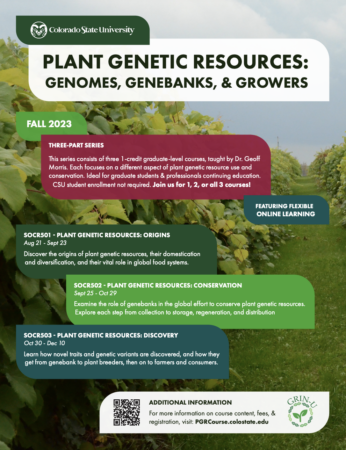- The benefits of alt-proteins spelled out in a report from the Center for Strategic and International Studies. I bet they’ll need alt-genebanks.
- The US national genebank system expertly deconstructed in a page.
- Bozakmin, the best of the berries, used to contrast late stage capitalism with Indigenous gift economies. Well worth the long read.
- Comment in Nature about how we are not taking fungal diseases of crops sufficiently seriously.
- There’s a place in Ireland with a 6000 year history of farming. Well maybe that’s rounded up a bit.
Nibbles: Calabrian citron, Cherokee seeds, Indigenous food systems & community seed bank in India, NZ apple diversity, Climate funding for food
- Calabrians are growing citrons under solar panels to protect them from the heat.
- The Church of the Good Shepherd in Decatur, Alabama is growing seeds from the Cherokee Nation Seed Bank in its gardens, and that’s a sort of homecoming.
- The Indigenous agrobiodiversity and food systems of Meghalaya in India’s NE are helping local people cope with extreme climatic conditions.
- Elsewhere in India, there are community seed banks to help with resilience.
- And in New Zealand, the Volco Park Cultivar Preservation Orchard is helping academics teach about crop diversity.
- Meanwhile, only 3% of climate funding is going into food systems.
Genomes, Genebanks, and Growers… The Course
 Your regular reminder that Colorado State University runs a great course entitled Plant Genetic Resources – Genomes, Genebanks, and Growers. And they’re now taking registrations for the Fall 2023 semester. Go for it. You won’t regret it.
Your regular reminder that Colorado State University runs a great course entitled Plant Genetic Resources – Genomes, Genebanks, and Growers. And they’re now taking registrations for the Fall 2023 semester. Go for it. You won’t regret it.
There are online training resources at GRIN-U, courtesy of the same project.
Nibbles: Wild tomatoes, Ghana genebank, India livestock census, USDA coffee breeding, Native Americans & their horses
- It’s pretty rare to have a mainstream media piece on the use of crop wild relatives for climate change adaptation but here we have an example with tomato, so make the most of it. There’s an interesting wrinkle though, so more to come, time permitting.
- It’s even rarer to see a mainstream media piece on genebank staff getting trained. What’s going on out there?
- Not exactly mainstream media, but how many times have you seen an official government press release on its livestock censuses? Anyway, India’s last one was carried out in 2019 and covered 184 breeds of 16 species. Wonder where the data is.
- Speaking of government press releases, here’s one from USDA announcing that it has joined a coffee breeding network. Well, I for one think it’s important.
- And staying in the USA, you know how you read in mainstream textbooks that Native Americans got horses from retreating Spanish colonists after the Pueblo Revolt? And you know how Native Americans have been saying that’s not what they think happened? How rare is it that a scientific paper involving Indigenous authors overturns a mainstream historical narrative and is splashed all over the mainstream media? Very rare, that’s how rare.
Nibbles: Spanish wine, Wild bananas, African tree seeds, Ancient Foodways, Coffee genotyping, Barbados genebank, Modern plant breeding myths, Yam seeds, Climate funding for food systems
- There’s a piece in The Guardian on how Spanish wine makers are fighting climate change by going back to old grape varieties like estaladiña.
- Maybe the same will happen with bananas, and its wild relatives could help? If so, it’s good we have this nifty catalogue.
- A pan-African tree seed platform is in the making, thanks to CIFOR-ICRAF and IKI funding. Where’s the catalogue?
- Here’s a video from the University of Wisconsin-Madison on A New Way of Teaching Ancient Foodways.
- And a video from USDA on their work on genotyping coffee collections.
- Meanwhile, Barbados is still thinking about building a genebank.
- The Genetic Literacy Project does some myth-busting (or tries to): have modern varieties decreased the diversity within crops, are contemporary plant varieties really not suitable for low-input farming, and is improving agricultural practices enough without plant breeding? Take a wild guess.
- Yam researchers in Benin have their own take on improving agricultural practices.
- More climate funding should go to food system transformation, says the Global Alliance for the Future of Food in a report. Those Spanish winemakers — and everyone else above — would probably agree.